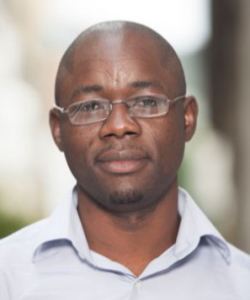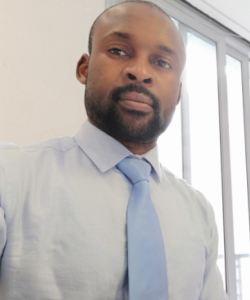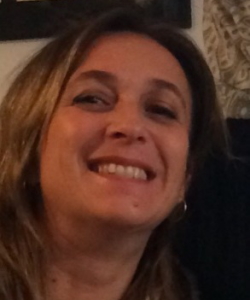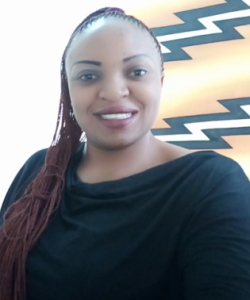
Background
Sonke Gender Justice (Sonke) is a non-partisan, non-profit organisation, based in South Africa, but working globally. Founded in 2006, Sonke has established a growing presence on the African continent and plays an active role internationally. Sonke works to create the change necessary for men, women, young people and children to enjoy equitable, healthy and happy relationships that contribute to the development of just and democratic societies. Sonke pursues this goal across Southern Africa by using a human rights framework to build the capacity of government, civil society organisations and citizens to achieve gender equality, prevent gender-based violence (GBV) and reduce the spread of HIV and the impact of AIDS. The organisation’s vision is a world in which men, women and children can enjoy equitable, healthy and happy relationships that contribute to the development of just and democratic societies. Sonke also works across Africa to strengthen government, civil society and citizen capacity to promote gender equality, prevent domestic and sexual violence, and reduce the spread and impact of HIV and AIDS.
Sonke is also the Secretariat of MenEngage Africa (MEA) Alliance, a network of civil society organisations and activists formed in 2006 with the goal of working in partnership to promote the engagement of men and boys in achieving gender equality, preventing HIV, promoting human rights and reducing violence at all levels across the continent, including questioning the structural barriers that drive gender inequalities. The membership of MEA consists of a range of civil society organisations representing women’s rights, HIV/AIDS, LGBTQIA+ rights, youth and child rights, refugees and migrants, and social justice constituencies.
Context
Since November 2019 the world has been profoundly affected by a global pandemic caused by the COVID-19 virus. In addition to the existing threats to public health, the economic and social disruption brought by the virus threatens the long-term livelihoods and well-being of millions. While many governments across the globe and the African continent have put measures in place to respond to the threats posed by this pandemic, many responses have focused on citizens much to the exclusion of other vulnerable groups such as refugees and migrants.
While most refugees and migrants face similar health threats from COVID-19 as their host populations, circumstances such as poor living conditions often in over-crowded spaces, challenges with documentation, limited employment opportunities, inadequate access to food, water, sanitation, and other basic services may make them more vulnerable. Many refugees and migrants have specific vulnerabilities as they are often excluded from national programmes for health promotion, disease prevention, treatment and care, as well as from financial protection schemes for health and social services particularly during this pandemic. This exclusion makes early detection, testing, diagnosis, contact tracing and seeking care for COVID-19 difficult for refugees and migrants thus increasing the risk of outbreaks amongst this population, and such outbreaks may go unchecked or even actively concealed.
Also, limited access to justice and protection of the law tends to create conditions where migrants and refugees’ communities are vulnerable to Sexual and Gender-Based Violence (SGBV). SGBV includes acts or threats of acts which inflict physical, mental, or sexual harm or suffering, or related deprivations of liberty on the basis of gender. Women and girls are more often at the receiving end of such violence than their male counterparts.
Sonke Gender Justice as the Secretariat of MEA will be convening a webinar to discuss ‘The impact of COVID 19 and the prevalence of SGBV among refugees and migrants’. The organisation will draw from its vast experience of working with refugees and migrants through the refugees’ health and rights project within its Community Education and Mobilisation unit to share its reflections using the case study of South Africa. Other speakers will be invited to share experiences from across the continent.
Moderation
The webinar will be moderated by Micheline Minani Muzaneza et Saint Expedit Ondzongo.
About the moderators
 |
Micheline Minani Muzaneza, hold a masters in Gender peace and security. Joined Sonke Gender Justice in 2010 She held the position of refugee health and right project coordinator and now she is the regional programmes Senior trainer. She is HIV counsellor and an expert in Gender, Conflict and migration. she is a sworn translator with the High Court of South Africa. |
 |
Saint Expedit lhamann Ondzongo is a Senior trainer for the Regional programme unit. He started working for Sonke as a volunteer in 2009 with refugee and migrant communities in Cape Town. He also volunteered for Health for Men where he was responsible for French and Lingala translations to HIV positive clients. |
Speakers
Guest speakers are individuals with knowledge and expertise on the topic. They have been drawn from institutions such as United Nations High Commission on Refugees (UNHCR), vison santé, partner organisations in the region, refugees and migrant community leaders.
 |
Leader Kanyiki Ngooyi is a community and refugee leader living in Cape Town, South Africa, since 2007. Originally from the DRC, he holds qualifications in Nursing Sciences as well as counselling and communications. He has received awards, including the 2011 AVAC HIV Prevention Fellowship, and the 2007 DRC Award for Peace and Development’.
He will speak on: The experiences of refugees, asylum seeker and migrant during the COVID-19 pandemic in the urban settings. |
 |
Managa Alain is the current executive director of local organisation in the republic of Congo call vision santé. Originally from the same country. He is a graduate from university of Marien Ngouabi in Congo Brazzaville with a master’s degree in clinical psychology. In his capacity of ED and Co- Founder of vision santé. He has worked closely with many UN agencies.
He will be speaking on: How COVID-19 and SGBV affect refugees psychologically, those in camps and urban. |
 |
Laura Buffoni is a graduate summa cum Laude in Political Sciences/International Economics at the University of Genoa, Italy. She has a doctoral degree in Sociology of Development from the University of Pisa, for which she conducted qualitative research in Italy, the UK and Sudan for a final thesis on poverty and globalization. A published author, after several years of social work and research, Laura moved into the international career space and has worked with UNHCR, the ILO, UNICEF, the Italian Government aid agency and consulted with several NGOs. With UNHCR Laura has worked in community-based protection, livelihoods and economic inclusion in Ethiopia, Yemen, Senegal and West Africa, Sudan, Jordan and Kenya/East Africa and currently in Southern Africa. Her areas of focus are protection of refugees and community-based actions, protection from gender-based violence, gender mainstreaming and child protection, social and gender norms that affect participation and create inequalities.
She will speak on: The prevention and response, UNHCR activities so to address the challenges of COVID-19 and SGBV in the SADEC region in camps and urban areas.” |
 |
Linda Kavira is the coordinator of MenEngage Africa ( MAE) in DRC, a network of civil society organisations and activists formed in 2006 with the goal of working in partnership to promote the engagement of men and boys in achieving gender equality, preventing HIV, promoting human rights and reducing violence at all levels across the continent, including questioning the structural barriers that drive gender inequalities. The membership of MEA consists of a range of civil society organisations representing women’s rights, HIV/AIDS, LGBTQIA+ rights, youth and child rights, refugees and migrants, and social justice constituencies.
She will speak on: The impact of Covid-19 on economic and social assistance for refugees during lockdown. |
Participants
Participants for the webinar will include MEA partners, refugees and migrant community leaders, interested staff members of UN agencies and any person who is interested in the topic.
The webinar will be conducted via Zoom; therefore, participants will need to have access to internet and the organising committee will share the Zoom details as soon this is available to all participants.
Date and Time
The date for the webinar is Tuesday, 23rd June 2020.
Language and Format
The webinar will be moderated in English.
Duration
The webinar will last for 2 hours and 30 minutes from 10:00 am – 12:30 noon SA time.
